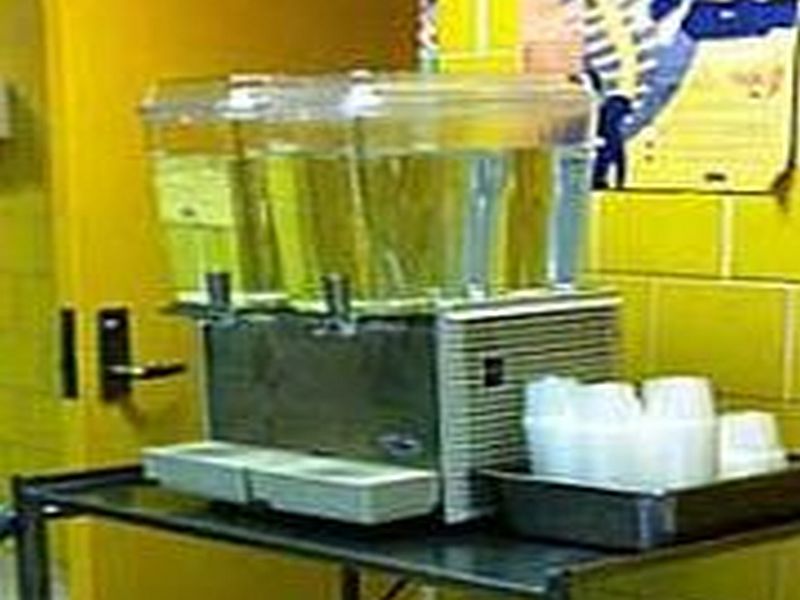
Related MedlinePlus Health Topics
Tuesday, January 19, 2016

TUESDAY, Jan. 19, 2016 (HealthDay News) -- Offering water in school cafeterias appears to promote modest weight loss as kids choose it over milk and other drinks, researchers report.
In schools with so-called water jets, which chill and oxygenate the water, the odds of boys being overweight were 0.9 percent less than among boys in schools without water jets. For girls, water jets were linked with a 0.6 percent decreased chances of overweight, the New York University researchers found.
"This is a small effect, but we are looking for anything that might be working for childhood obesity, and this is a low-cost intervention," said lead researcher Brian Elbel. He is an associate professor of population health and health policy at NYU School of Medicine in New York City.
Elbel thinks that this modest decrease in weight is the result of kids choosing water over other drinks, such as milk or sugary sodas or juices they may bring from home. "If you are drinking water, then you are not drinking something else that has more calories in it," he said.
Elbel added that this finding only shows an association between water availability and weight loss, not that having water jets in school cafeterias caused kids to lose weight.
Before water jets were installed, water was not readily available in New York City school cafeterias, Elbel said. "When water was available on the serving line and easy to get, that's all it took to get kids to drink more water," he said.
Elbel said that this school experience might translate to the home. Making water more available at home as an alternative could also help kids lose weight, he said. "A small change at home could have a big impact," he added.
The report was published online Jan. 19 in JAMA Pediatrics. Funding for the study was provided by the U.S. National Institute of Child Health and Human Development.
For the study, the researchers collected data on more than 1,200 New York City elementary and middle schools. There were more than one million students in these schools. Of the schools, 483 had water jets in their cafeteria and 744 did not.
The study authors also found that about 12 fewer half-pints of milk per student were purchased each year after the water jets were installed.
The water jets were placed in the schools in 2009 by New York City's Department of Health and Mental Hygiene and the Department of Education as a way to increase access to drinking water during lunch. Water jets are electrically cooled, large, clear jugs that dispense water quickly and cost about $1,000 per machine, according to background information in the study.
Dr. David Katz is director of the Yale University Prevention Research Center and president of the American College of Lifestyle Medicine. According to Katz, "This study demonstrates a number of important but fundamentally simple principles. First, water is usually the best choice for any of us when thirsty," he said.
"Second, the choices we make are limited to the choices we have. Give kids easy, convenient access to cold water and they drink more of it," he added.
"Third, we sometimes do have to build the obvious solution to get people to come to it," Katz explained.
Many studies show or suggest a benefit from eating dairy foods. "That may be true, and is certainly true when milk is chosen instead of soda. But this study suggests that if the contest is between milk and water, water is apt to win," Katz said. "This study is a robust validation of applying sense to the basic care and feeding of our kids."
SOURCES: Brian Elbel, Ph.D., M.P.H., associate professor, population health and health policy, NYU School of Medicine, New York City; David Katz, M.D., M.P.H., director, Yale University Prevention Research Center, New Haven, Conn., and president, American College of Lifestyle Medicine; Jan. 19, 2016, JAMA Pediatrics, online
HealthDay
Copyright (c) 2016 HealthDay. All rights reserved.
- More Health News on:
- School Health









































No hay comentarios:
Publicar un comentario